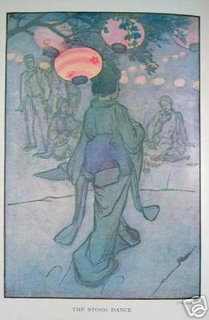the longest day!
 Why, who makes much of a miracle?
Why, who makes much of a miracle?As to me I know of
nothing else but miracles,
Whether I walk the streets of Manhattan,
Or dart my sight over the roofs
of houses toward the sky,
Or wade with naked feet along the beach just in the edge of the water,
Or stand under trees in the woods,
Or talk by day with any one I love, or sleep in the bed at night with any one I love,
Or sit at table at dinner with the rest,
 Or look at strangers opposite me
Or look at strangers opposite meriding in the car,
Or watch honey-bees busy around the hive of a summer forenoon,
Or animals feeding in the fields,
Or birds, or the wonderfulness
of insects in the air,
Or the wonderfulness of the sundown, or of stars shining so quiet and bright,
Or the exquisite delicate thin curve of the new moon in spring;
These with the rest, one and all, are to me miracles,
The whole referring, yet each distinct and in its place.
 To me every hour of the light
To me every hour of the lightand dark is a miracle,
Every cubic inch of space is a miracle,
Every square yard of the surface of the earth is spread with the same,
Every foot of the interior
swarms with the same.
 To me the sea is a continual miracle,
To me the sea is a continual miracle,The fishes that swim—the rocks—the motion of the waves—
the ships with men in them,
What stranger miracles are there?
Walt Whitman
 Commonplace miracle:
Commonplace miracle:that so many commonplace miracles happen.
An ordinary miracle:
in the dead of night
the barking of invisible dogs.
One miracle out of many:
a small, airy cloud
yet it can block a large and heavy moon.
 Several miracles in one:
Several miracles in one:an alder tree reflected in the water,
and that it's backwards left to right
and that it grows there, crown down
and never reaches the bottom,
even though the water is shallow.
An everyday miracle:
winds weak to moderate
turning gusty in storms.
 First among equal miracles:
First among equal miracles:cows are cows.
Second to none:
just this orchard
from just that seed.
A miracle without a cape and top hat:
scattering white doves.
A miracle, for what else could you call it:
today the sun rose at three-fourteen
and will set at eight-o-one.
 A miracle, less surprising than it should be:
A miracle, less surprising than it should be:even though the hand has fewer
than six fingers,
it still has more than four.
A miracle, just take a look around:
the world is everywhere.
An additional miracle,
as everything is additional:
the unthinkable is thinkable.
Wislawa Szymborska
translated by Joanna Trzeciak
oops... almost forgot
Labels: alvin ailey, dance, edward penfield, marcello dudavich, poetry, rafael de penagos, solstice, torne esquius, vallotton, walt whitman, Wislawa Szymborska

























